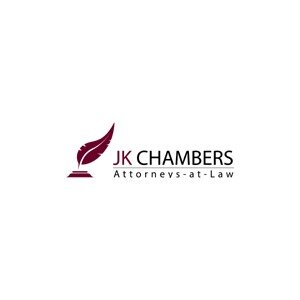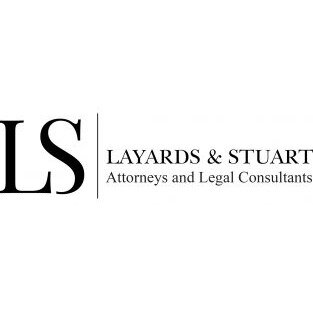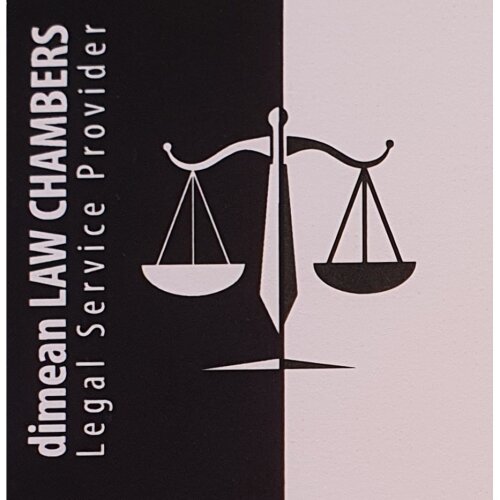Best Nonprofit & Charitable Organizations Lawyers in Colombo
Share your needs with us, get contacted by law firms.
Free. Takes 2 min.
List of the best lawyers in Colombo, Sri Lanka
About Nonprofit & Charitable Organizations Law in Colombo, Sri Lanka
Nonprofit and charitable organizations play a vital role in the social and economic fabric of Colombo, Sri Lanka. These entities are established to support community development, address social issues, and provide aid to those in need. In Sri Lanka, a non-profit organization can be formed as a Voluntary Social Service Organization under the Voluntary Social Service Organizations (Registration and Supervision) Act, a Charitable Trust, or a Company Limited by Guarantee under the Companies Act. Each form has specific legal and regulatory requirements that must be followed, ensuring transparency and accountability in their operations.
Why You May Need a Lawyer
Legal advice can be essential for nonprofit and charitable organizations in several situations, including:
- Establishing the organization: Navigating the legal requirements and registration processes.
- Drafting the constitution or trust deed: Ensuring these documents comply with legal standards and reflect the organization's mission.
- Compliance: Assisting with tax obligations and maintaining proper records to comply with local laws.
- Governance: Advising on board responsibilities and implementing good governance practices.
- Dispute resolution: Handling conflicts within the organization or with external parties.
- Employment law: Ensuring compliance with employment regulations if the organization has staff members.
Local Laws Overview
Key aspects of local laws relevant to nonprofit and charitable organizations in Colombo include:
- Voluntary Social Service Organizations (Registration and Supervision) Act: Governs the registration and regulation of voluntary social service organizations, requiring them to be registered and compliant with specified codes of conduct.
- Companies Act, No. 7 of 2007: Allows for the formation of nonprofit companies limited by guarantee, providing a framework for their operation and governance.
- Income Tax Act: Provides certain exemptions and tax benefits to charitable organizations, subject to compliance with relevant regulations.
- Charitable Trusts: Regulated under common law and specific legislation, requiring proper registration and adherence to the trust's objectives.
Frequently Asked Questions
1. What is the process for registering a nonprofit organization in Colombo?
To register a nonprofit organization, one must decide on the legal form (e.g., Voluntary Social Service Organization, Charitable Trust, or Company Limited by Guarantee), prepare necessary documentation, and apply through the relevant governmental body for registration.
2. Are there any tax benefits for charitable organizations in Sri Lanka?
Yes, charitable organizations are eligible for certain tax exemptions, provided they adhere to the requirements set forth in the Income Tax Act.
3. What are the governance requirements for a nonprofit organization?
Governance requirements include having a board of directors or trustees, conducting regular board meetings, and maintaining proper financial records and audits.
4. How can a nonprofit organization protect its intellectual property?
Nonprofit organizations should register trademarks, copyrights, or patents as appropriate to protect intellectual property assets.
5. What regulations exist regarding foreign funding for nonprofits in Sri Lanka?
Foreign funding must comply with specific notifications and permissions, and organizations are required to report foreign funding receipts to the authorities.
6. How can a nonprofit organization engage volunteers lawfully?
Organizations should have written agreements with volunteers, outlining duties and expectations, and should comply with labor laws where applicable.
7. What steps are involved in dissolving a nonprofit organization?
Dissolution involves formally liquidating assets, settling liabilities, and ensuring all regulatory obligations are met before official deregistration.
8. Can a nonprofit organization engage in commercial activities?
Yes, but such activities must align with the non-profit's mission and cannot be the primary focus. Profits are reinvested into the organization's purposes.
9. Are there legal requirements for fundraising activities?
Fundraising activities must comply with relevant regulations, including obtaining necessary permits and ensuring transparency and accountability in the use of funds.
10. Can a nonprofit organization collaborate with other entities internationally?
Yes, but specific regulations regarding foreign partnerships and funding must be adhered to, ensuring compliance with national laws.
Additional Resources
For further assistance, consider reaching out to the following resources:
- The Department of National Planning: Provides guidance on policy and regulatory frameworks.
- The Registrar of Companies: Offers registration support and legal requirements for nonprofit companies.
- The National Secretariat for Non-Governmental Organizations: Oversees registration and compliance for NGOs.
- The Inland Revenue Department: Provides information on tax obligations and exemptions.
Next Steps
If you require legal assistance for your nonprofit or charitable organization in Colombo, Sri Lanka, consider the following steps:
- Identify your specific legal needs based on the stage and activities of your organization.
- Research and contact a qualified legal expert who specializes in nonprofit and charitable law.
- Prepare all necessary documents and organizational information for an initial consultation.
- Discuss potential legal strategies and actions with your advisor to ensure compliance and alignment with your organization's objectives.
Lawzana helps you find the best lawyers and law firms in Colombo through a curated and pre-screened list of qualified legal professionals. Our platform offers rankings and detailed profiles of attorneys and law firms, allowing you to compare based on practice areas, including Nonprofit & Charitable Organizations, experience, and client feedback.
Each profile includes a description of the firm's areas of practice, client reviews, team members and partners, year of establishment, spoken languages, office locations, contact information, social media presence, and any published articles or resources. Most firms on our platform speak English and are experienced in both local and international legal matters.
Get a quote from top-rated law firms in Colombo, Sri Lanka — quickly, securely, and without unnecessary hassle.
Disclaimer:
The information provided on this page is for general informational purposes only and does not constitute legal advice. While we strive to ensure the accuracy and relevance of the content, legal information may change over time, and interpretations of the law can vary. You should always consult with a qualified legal professional for advice specific to your situation.
We disclaim all liability for actions taken or not taken based on the content of this page. If you believe any information is incorrect or outdated, please contact us, and we will review and update it where appropriate.

















